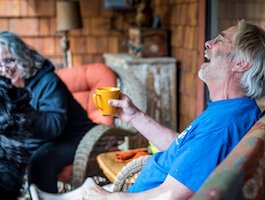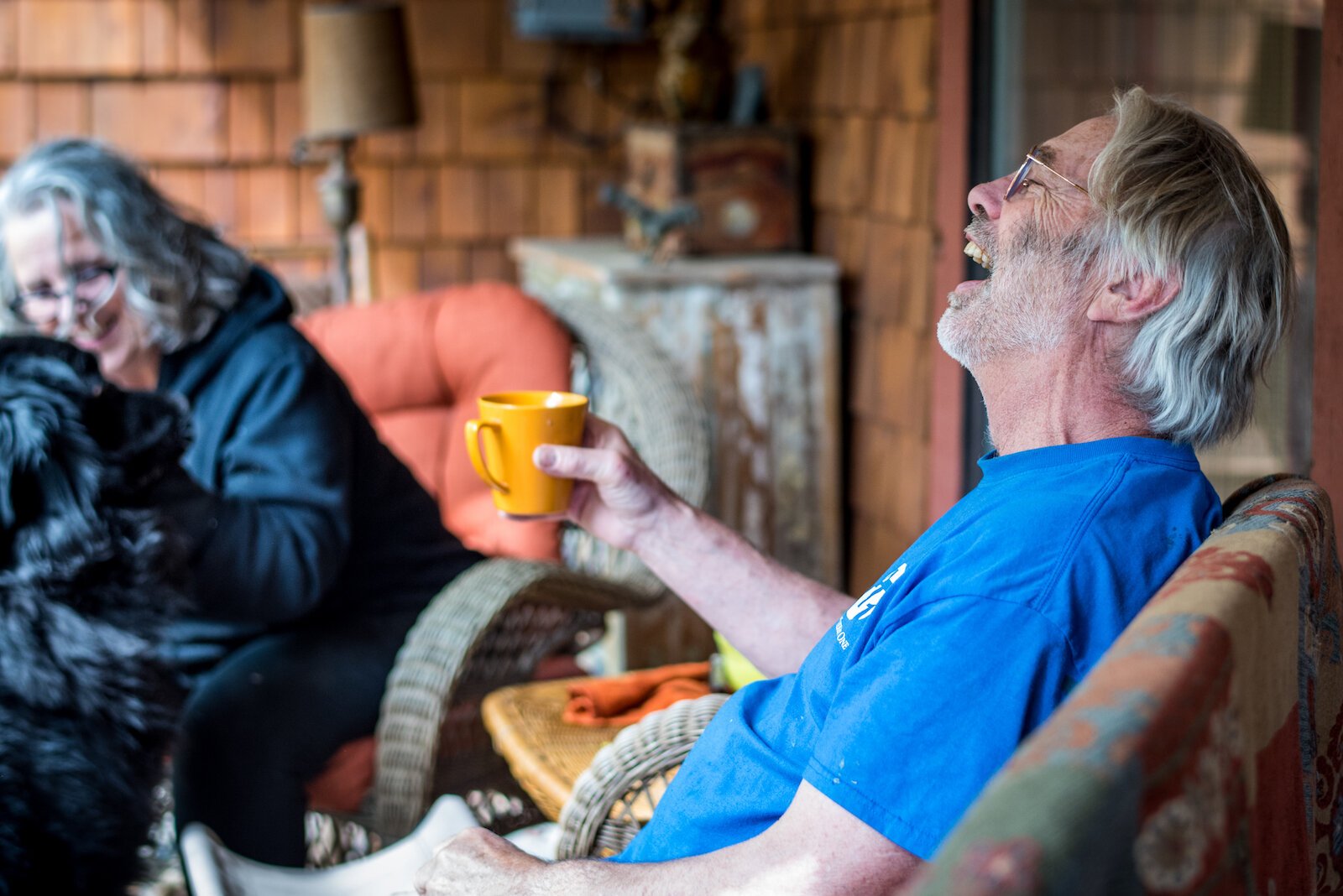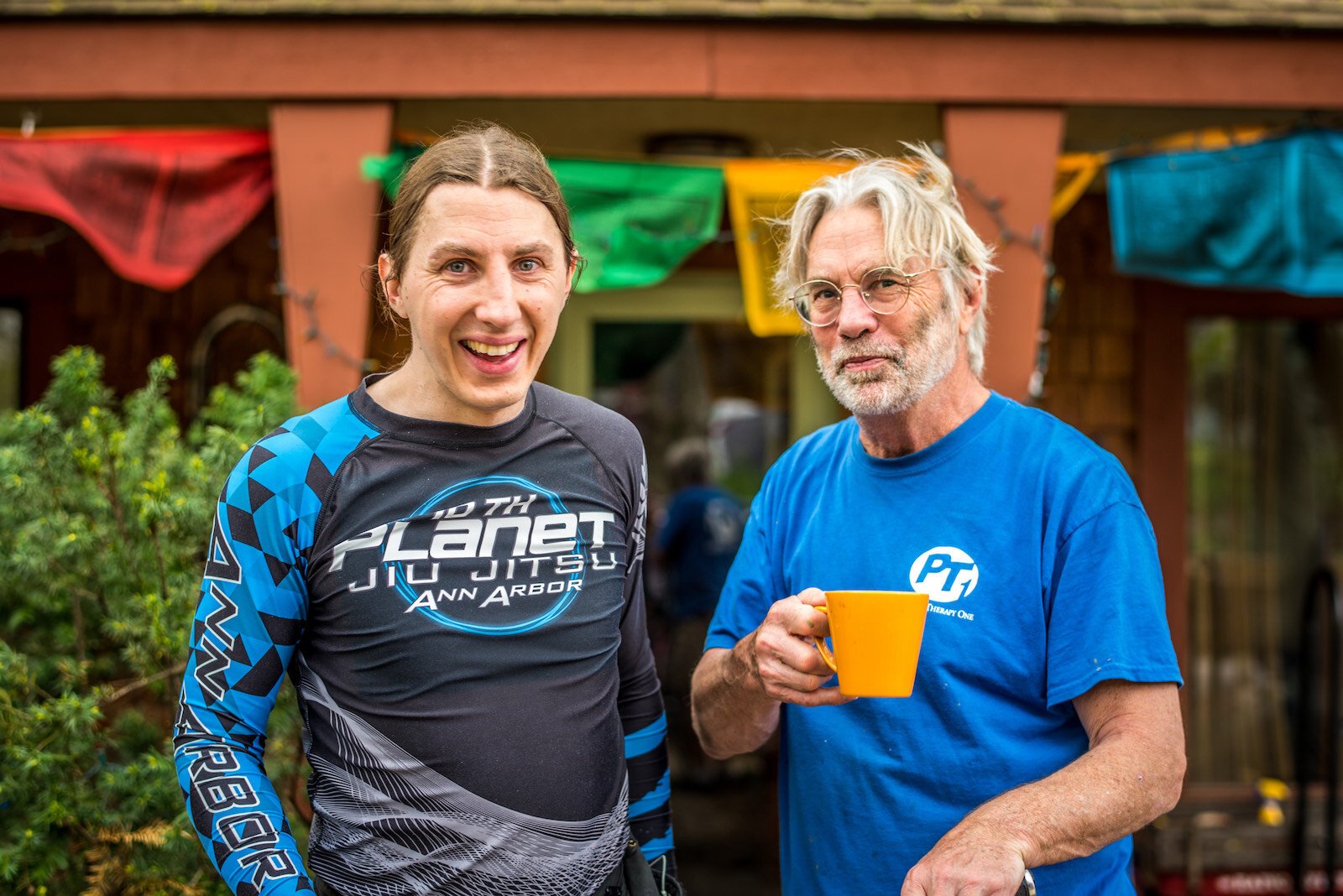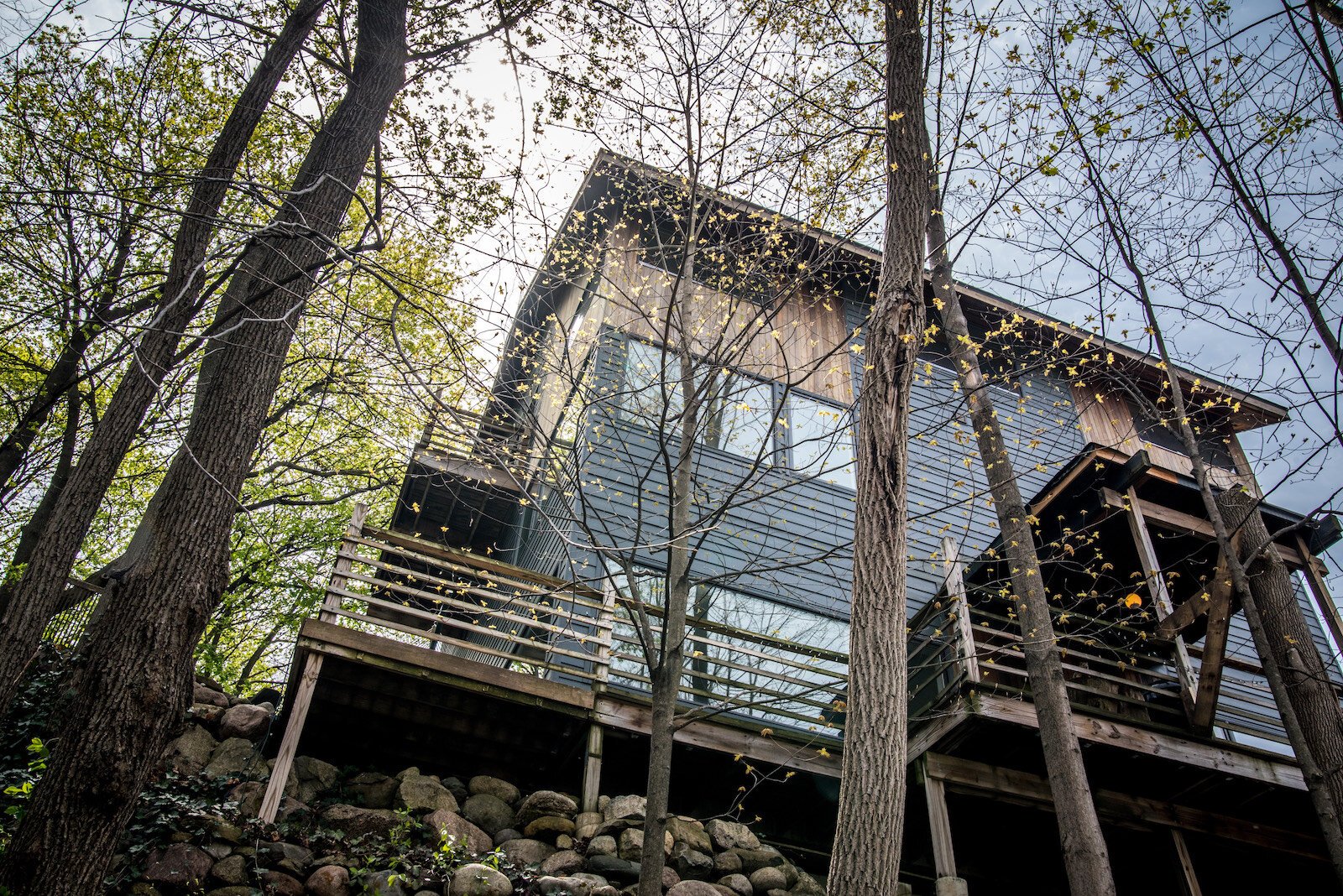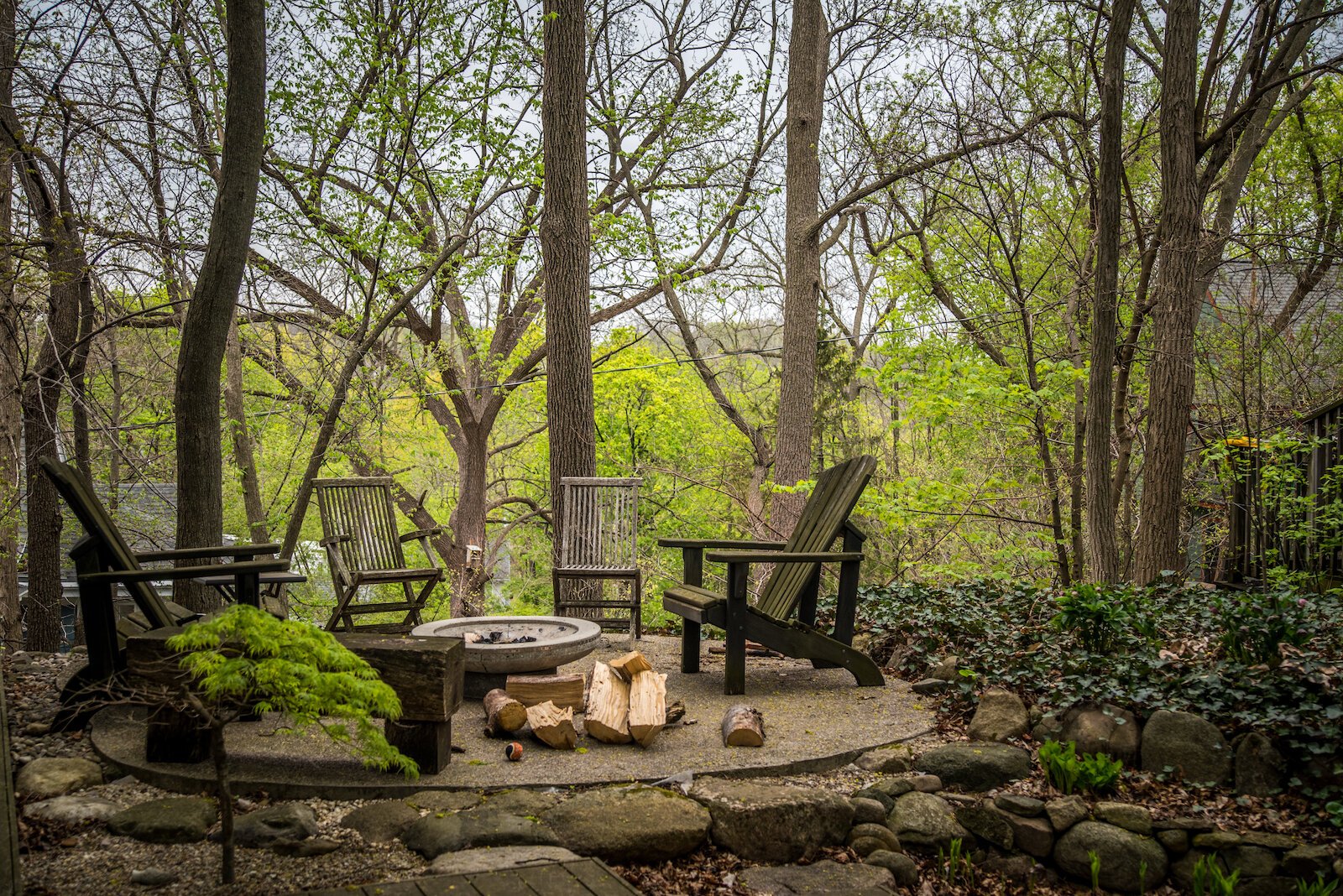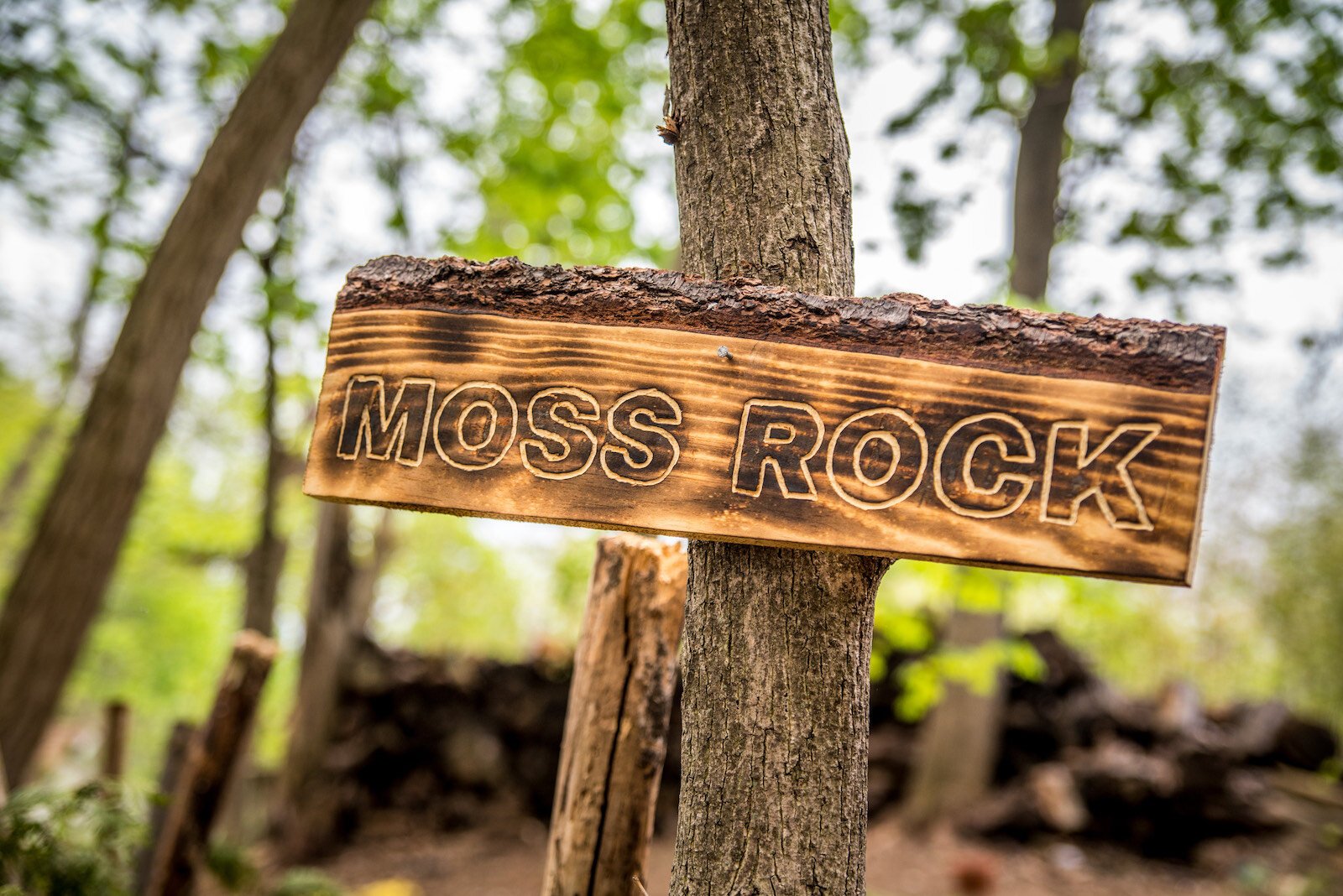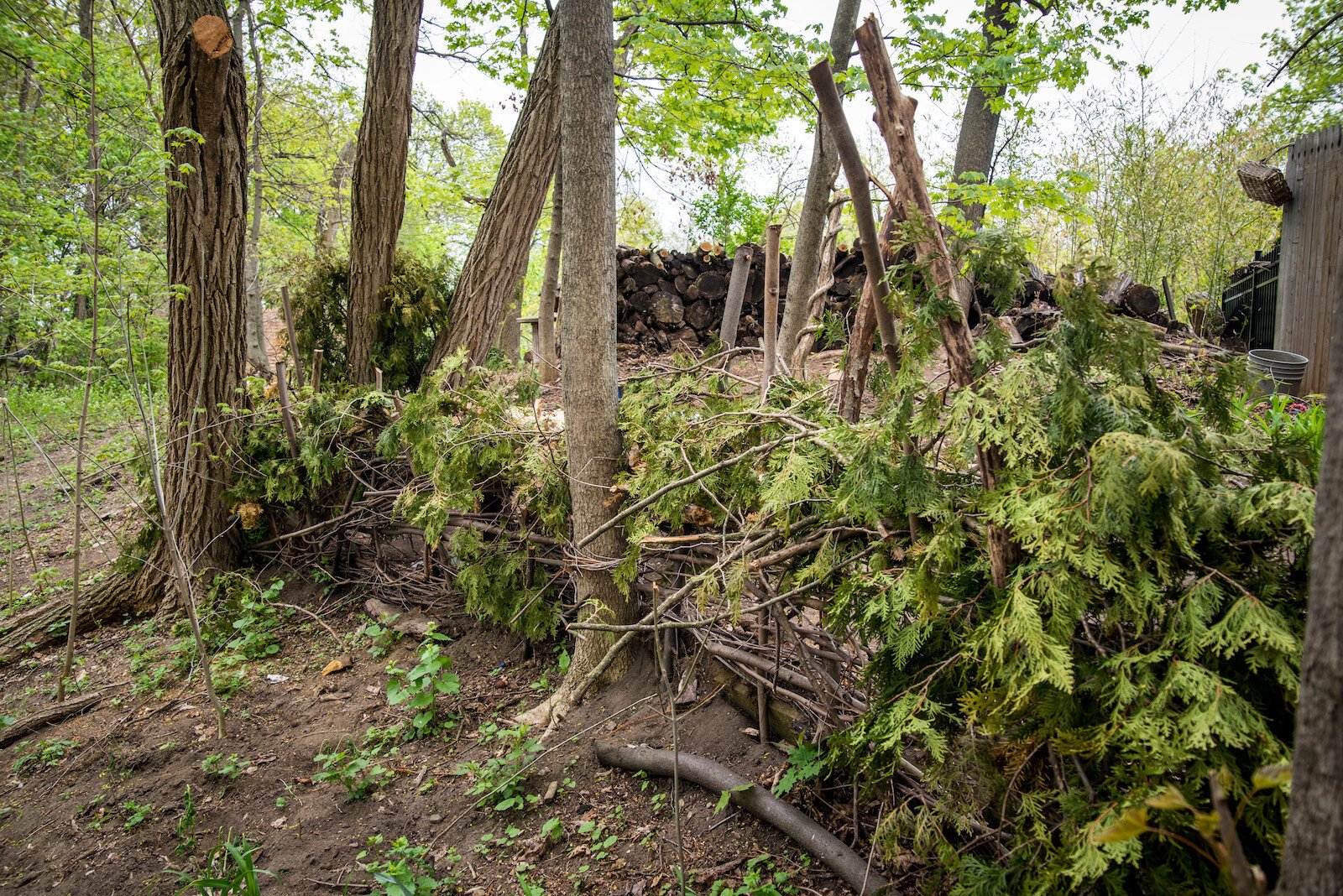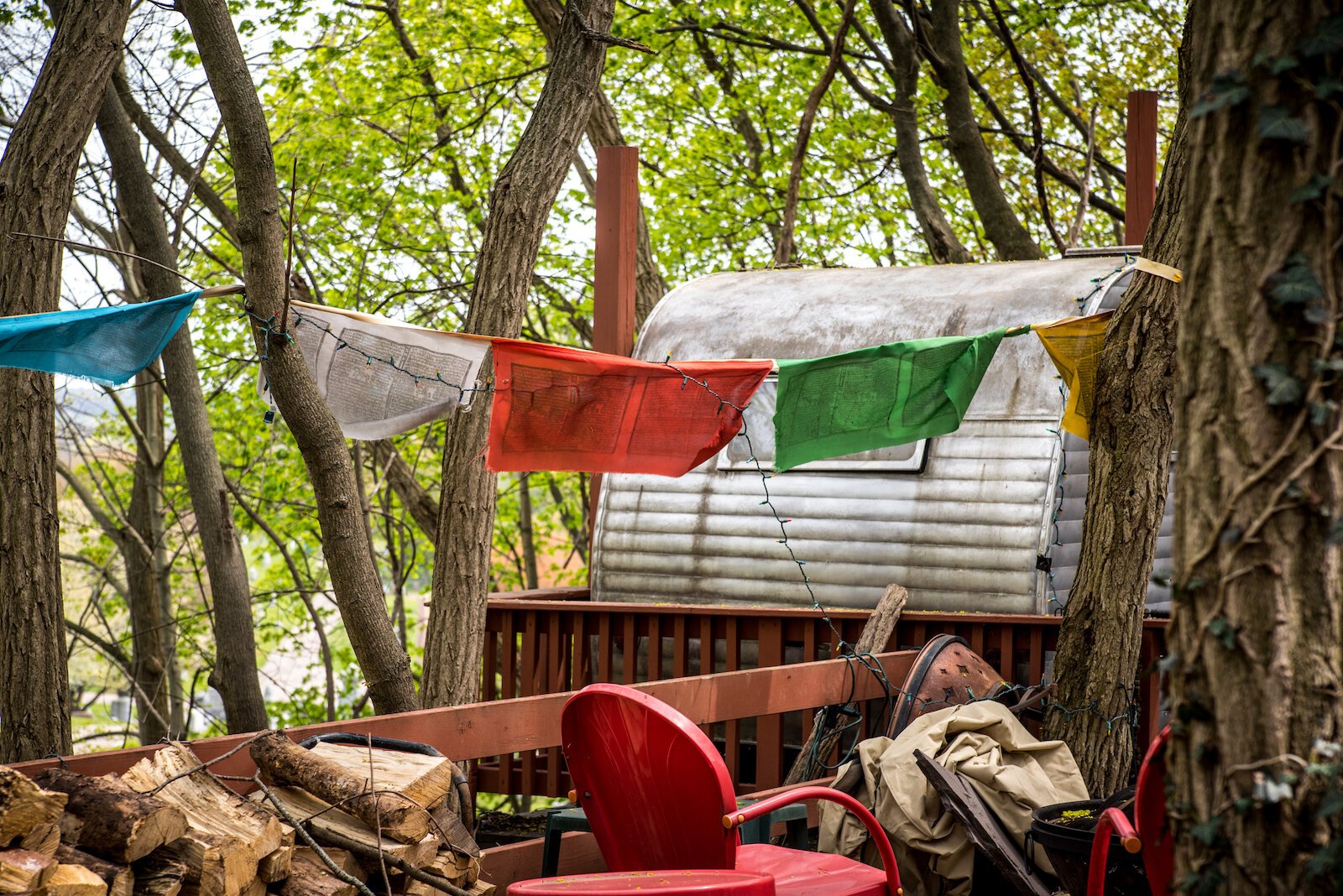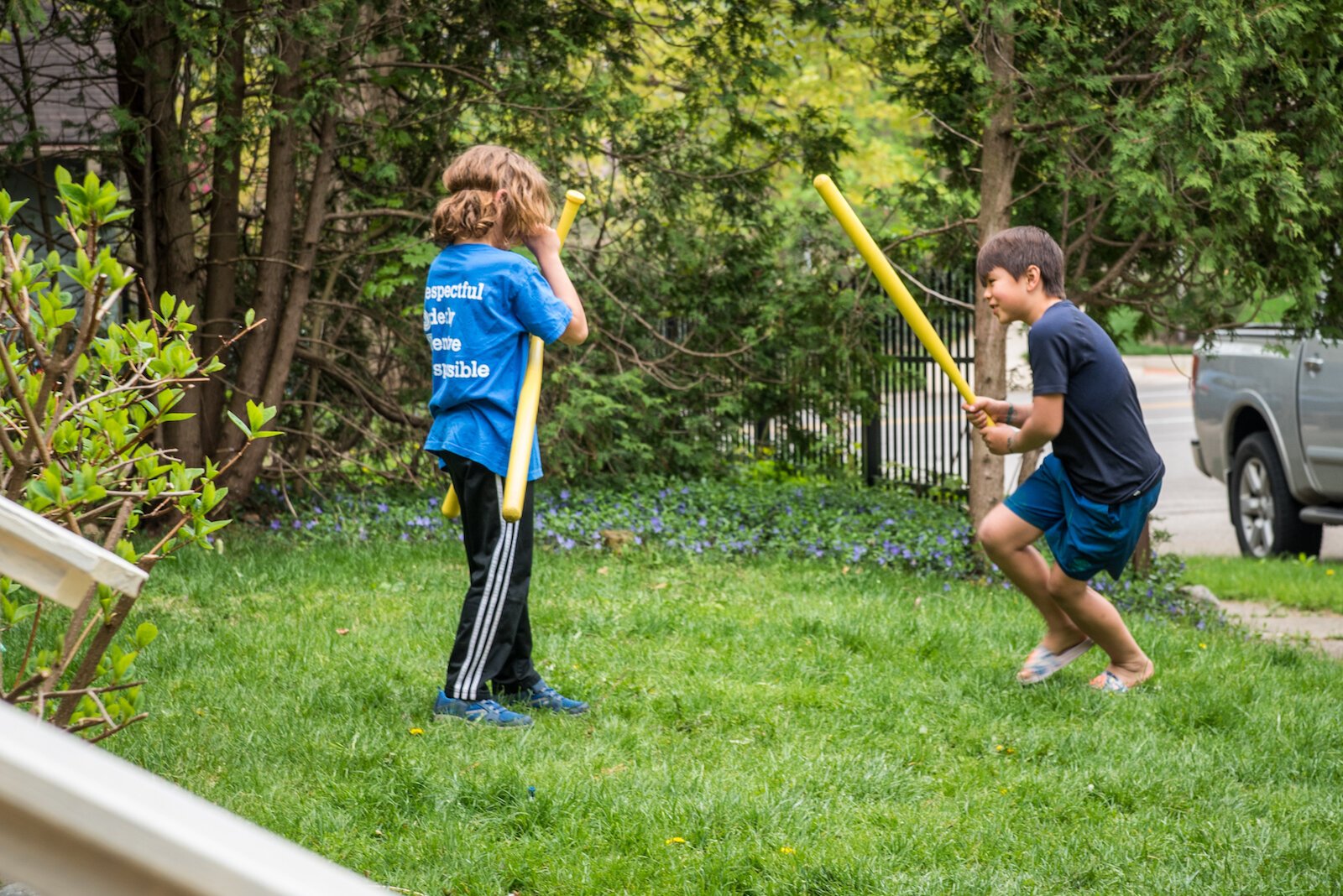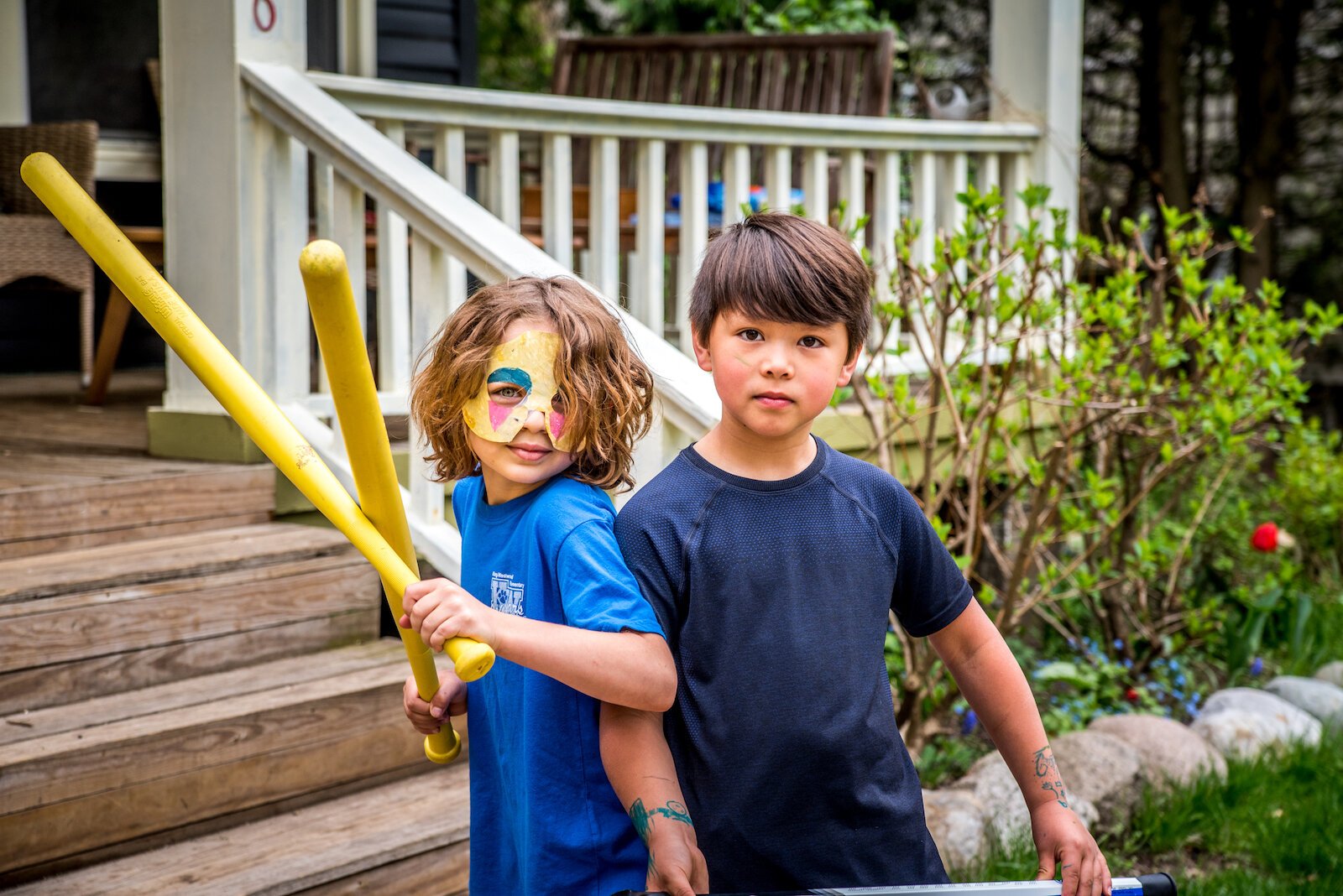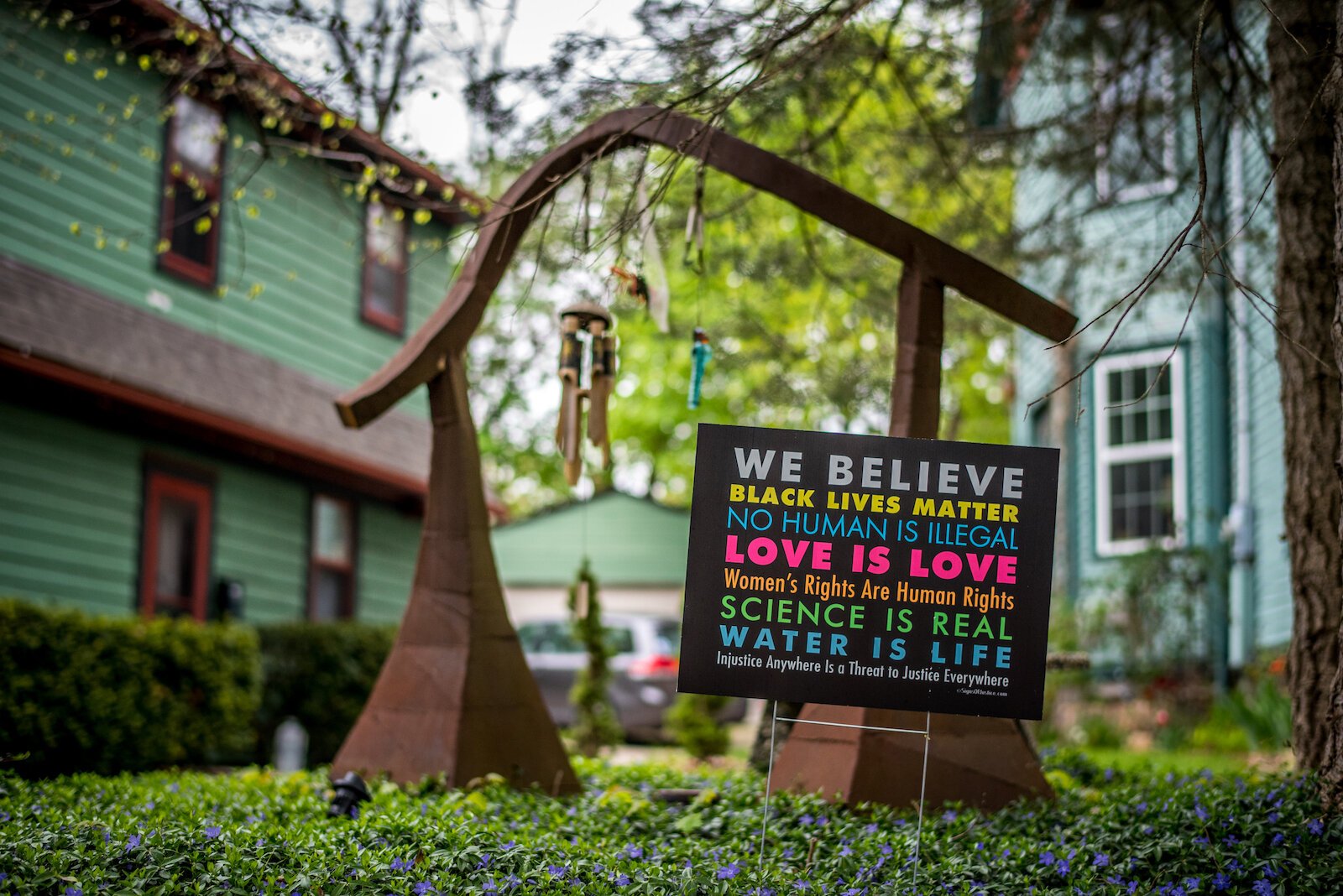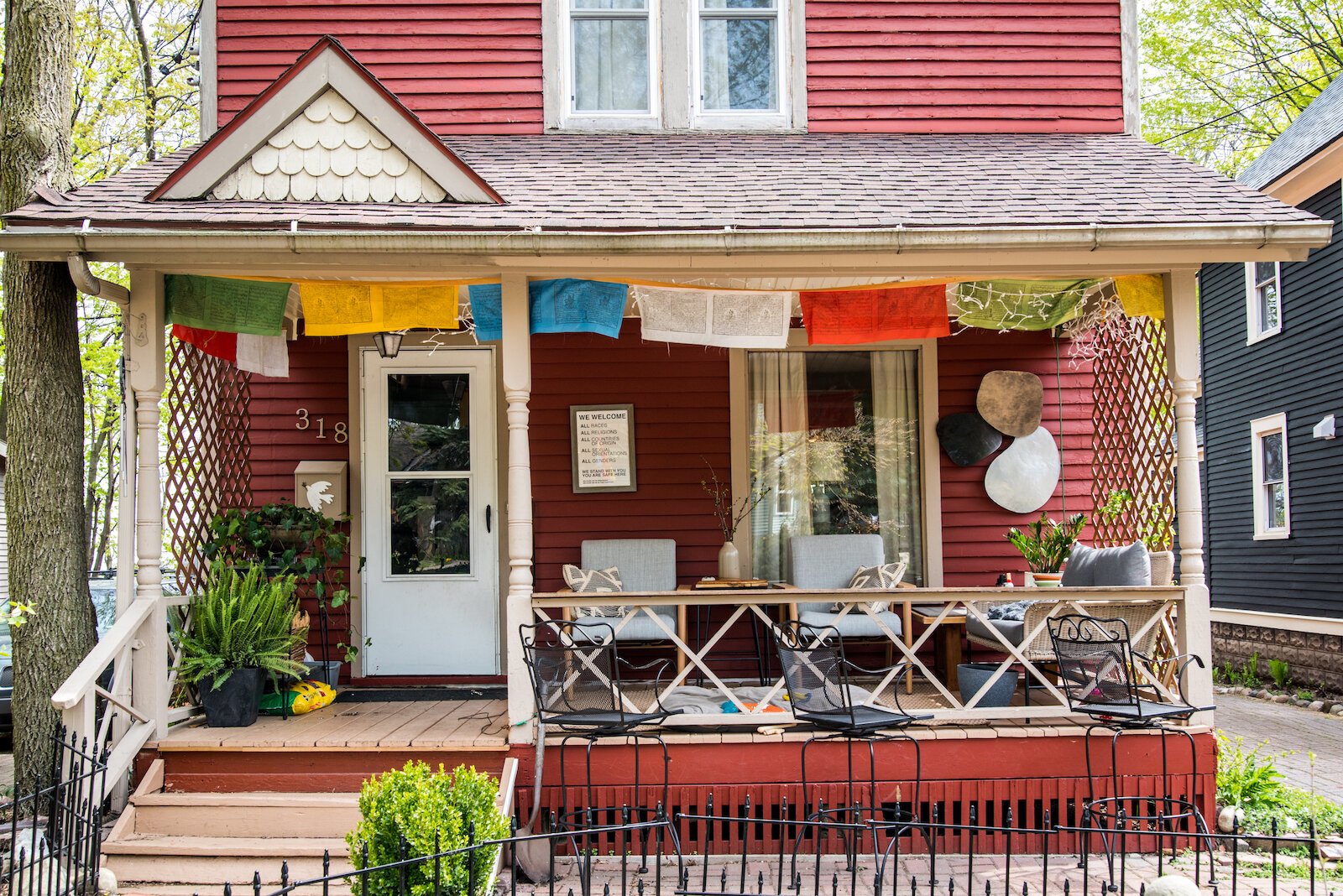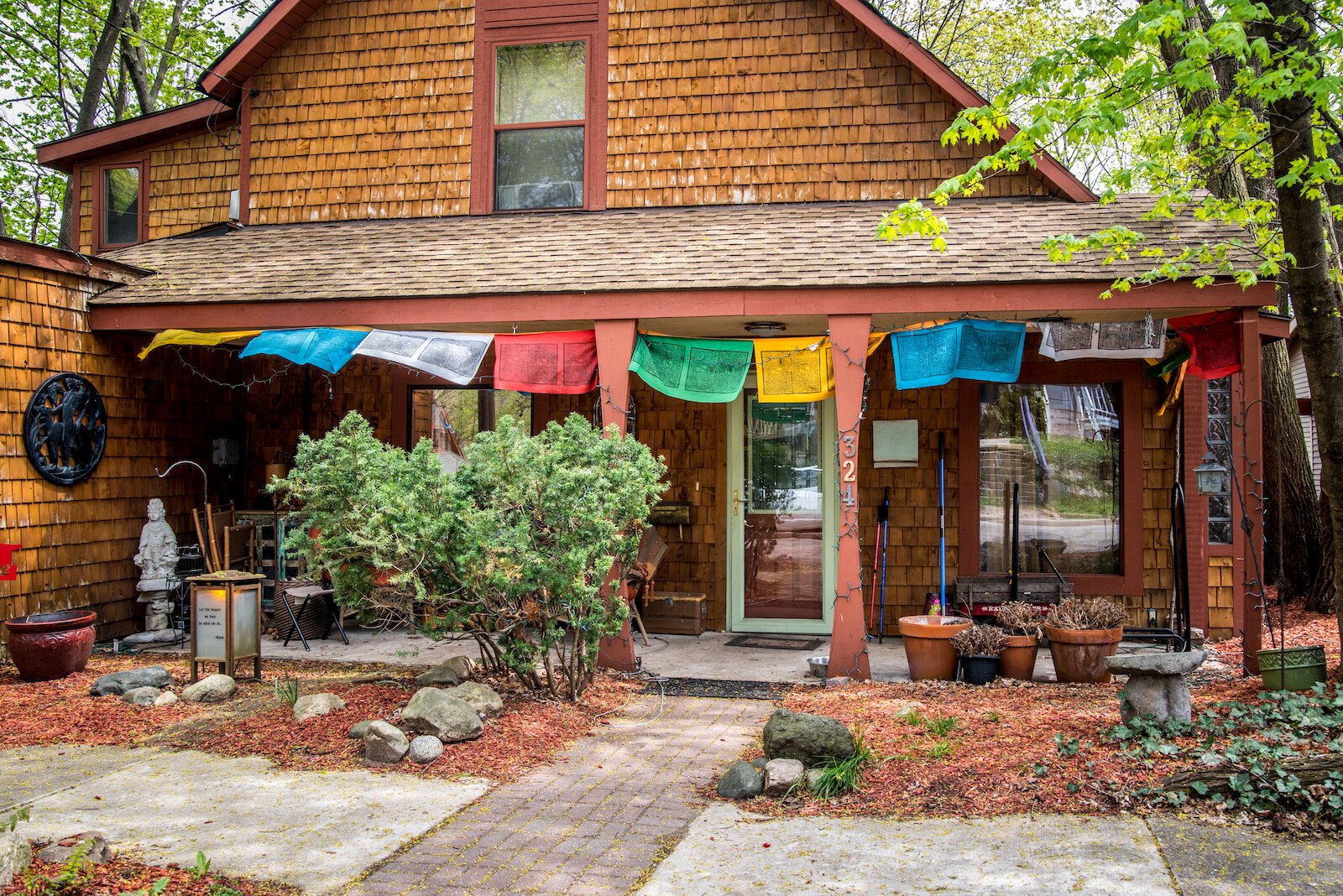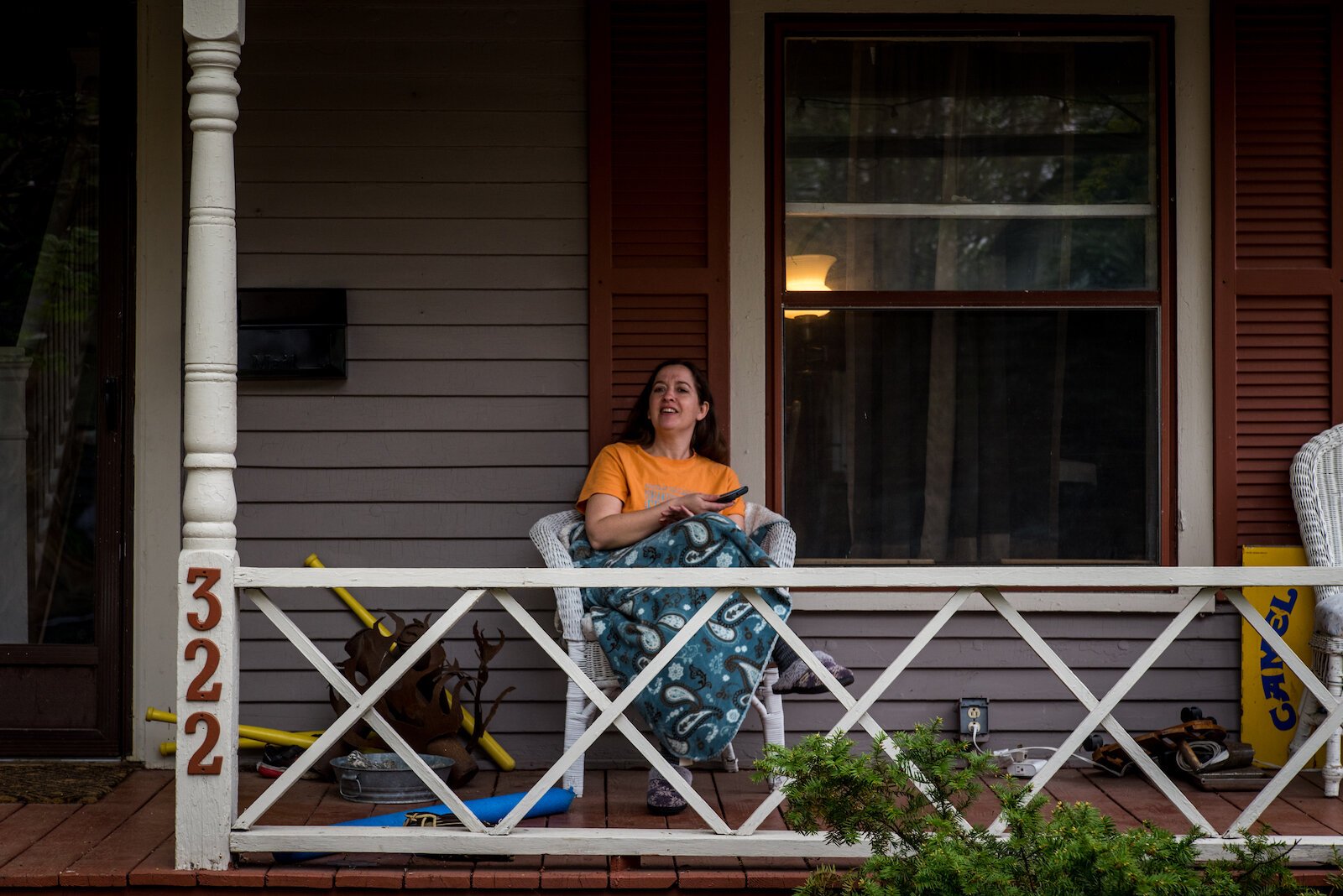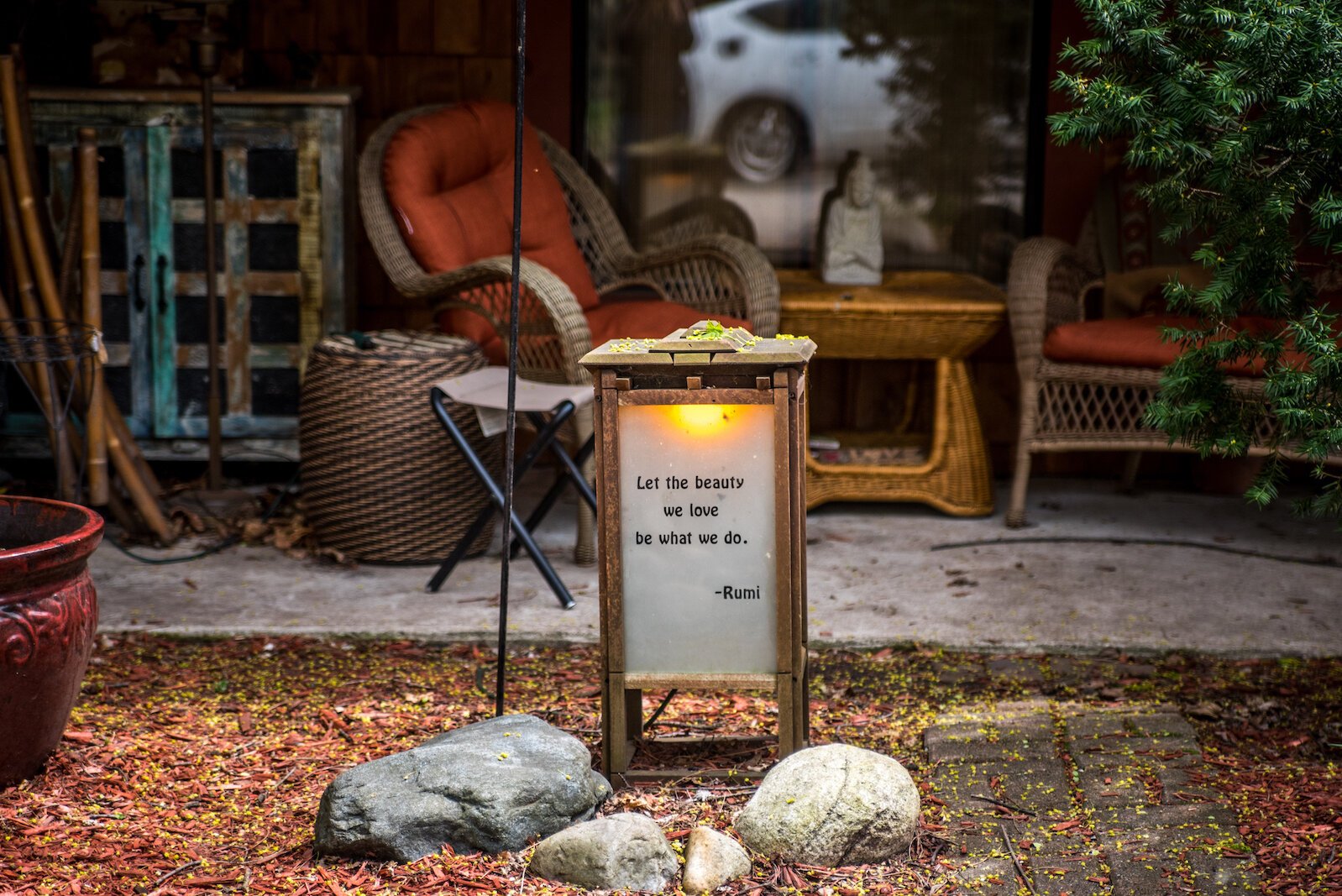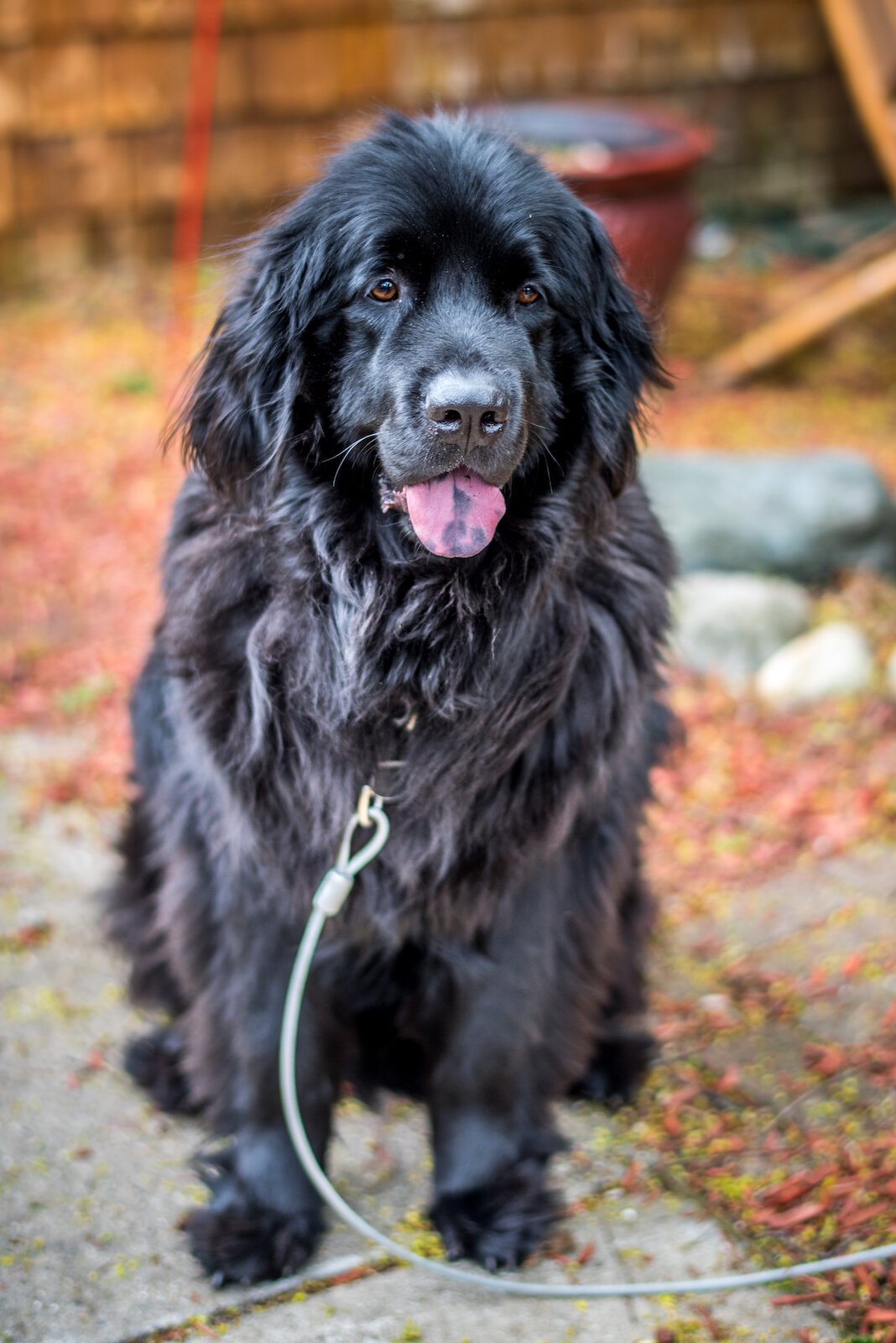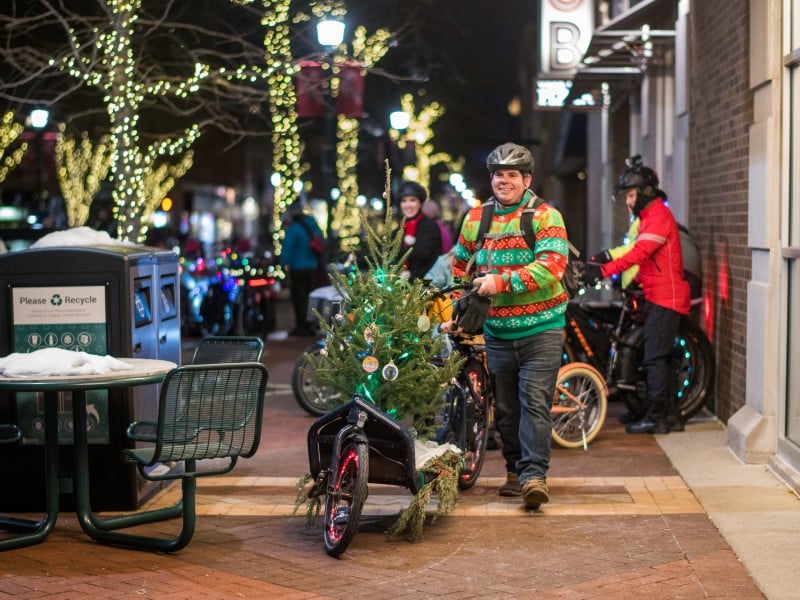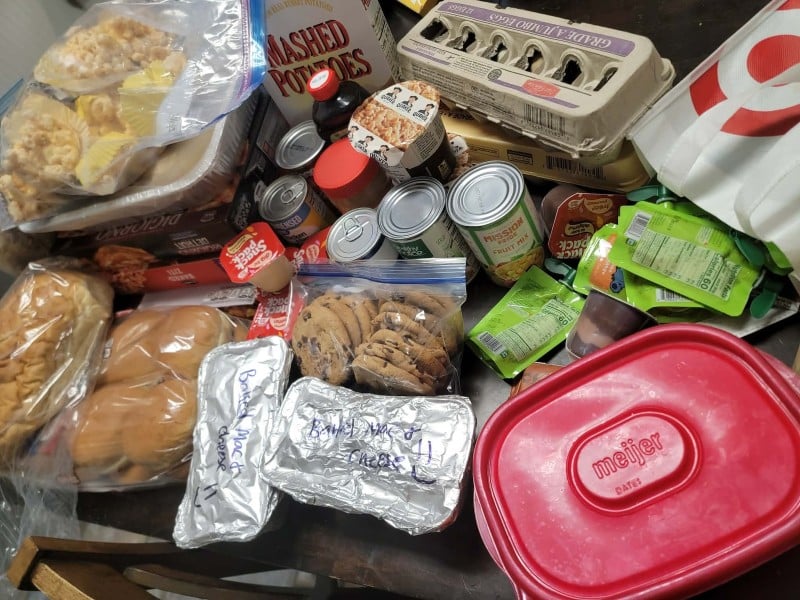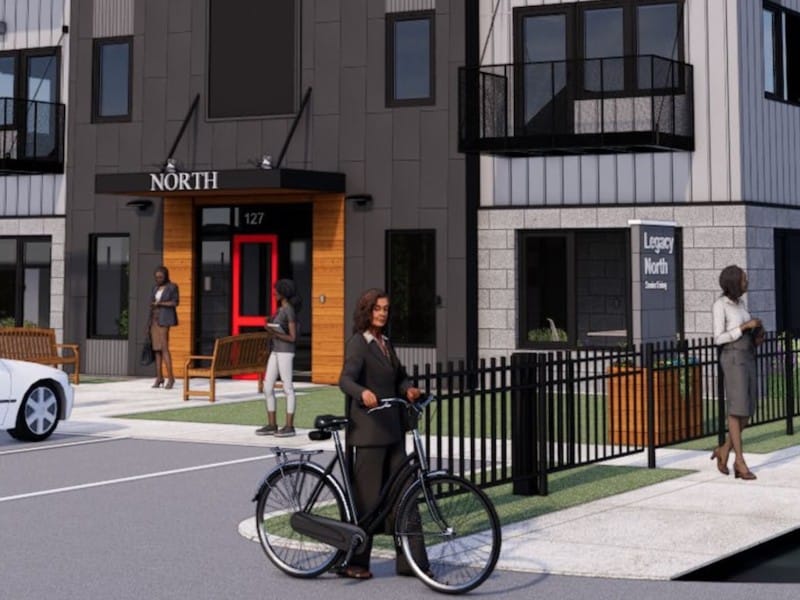Getting your Trinity Audio player ready...
Editor’s Note: This story is part of Southwest Michigan Second Wave’s On the Ground West Douglas/Fairmont Neighborhood series.Wouldn’t it be great to know your neighbors before you move in? And for them to be people you like?
Wouldn’t it be great to live in a neighborhood where everybody is cordial but relaxed? Where people watch out for one another’s kids? Where random acts of kindness are a routine thing? And the idea of “home” includes the people next door and the folks down the street?
Residents of Prospect Street, north of Main Street in Kalamazoo’s West Douglas Neighborhood, think life in their little enclave comes close. They call it The People’s Republic of Prospect.
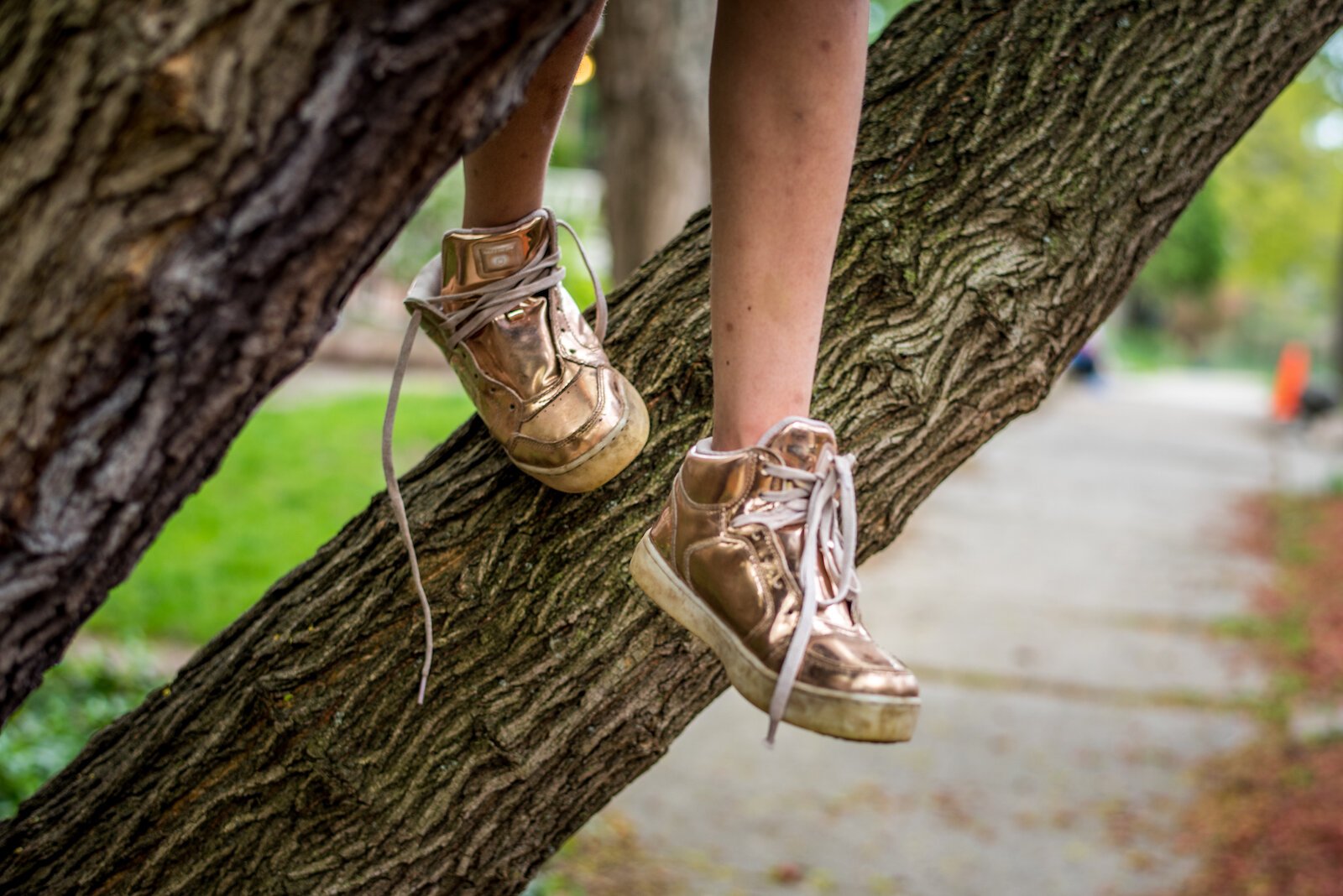
A resident of Prospect Street for 38 years, he laughs about the neighborhood’s nickname and says the idea of a five-block proclamation of sovereignty is a joke. But he says, “There is an autonomous vibe here. You know you’re in a neighborhood.”
“Everybody here knows each other,” says Matt Gross, a 12-year resident of Prospect Place. “All the kids run. Coming into the (spring) season now there’ll be Sunday brunches in the street with waffles. Tom always comes out and pulls out a couple of tables and has waffles. We hang out in the ‘state park’ all the time. It’s just a very communal little enclave neighborhood.”
The “state park” is a tiny greenspace at the elbow of Prospect Street and Prospect Place that overlooks one of the highest hills in the West Douglas Neighborhood and was once a dumping place for debris from the May 1980 tornado. Just off the apex of West Main Street hill, the streets are situated in dog-leg fashion with West Main Street at one end and Hilbert Street at the other.
“The tornado beat the crap out of this neighborhood,” explains Kostrzewa (pronounced Kost-CHA-Vuh), an educator who says he relocated back to Michigan from China in 1983 “with a dime, and a baby, and my wife.”
“The park area was a dump,” he says. “… When we first arrived, it was barbed wire and broken glass and shards. The side of this house (the house next to the greenspace, in which he now lives) had been torn off. There was trash from the tornado everywhere. The nook became a dumping ground and it went down the hill.”
But he and his wife Jean Ogilvie bought a house two doors from the space and, along with neighbors, got rid of the debris and reclaimed the area. Kostrzewa says they started with very little money but found affordable opportunities in a damaged area and learned to use one property to leverage the purchase of another and then another. He has a low tolerance for absentee landlords who rent houses in the area, many to college students, but do little to fix them up. So he and his wife bought the house in which they now live and they have owned nearly every house on the two streets (15 at a high point in the 1990s, and six presently).
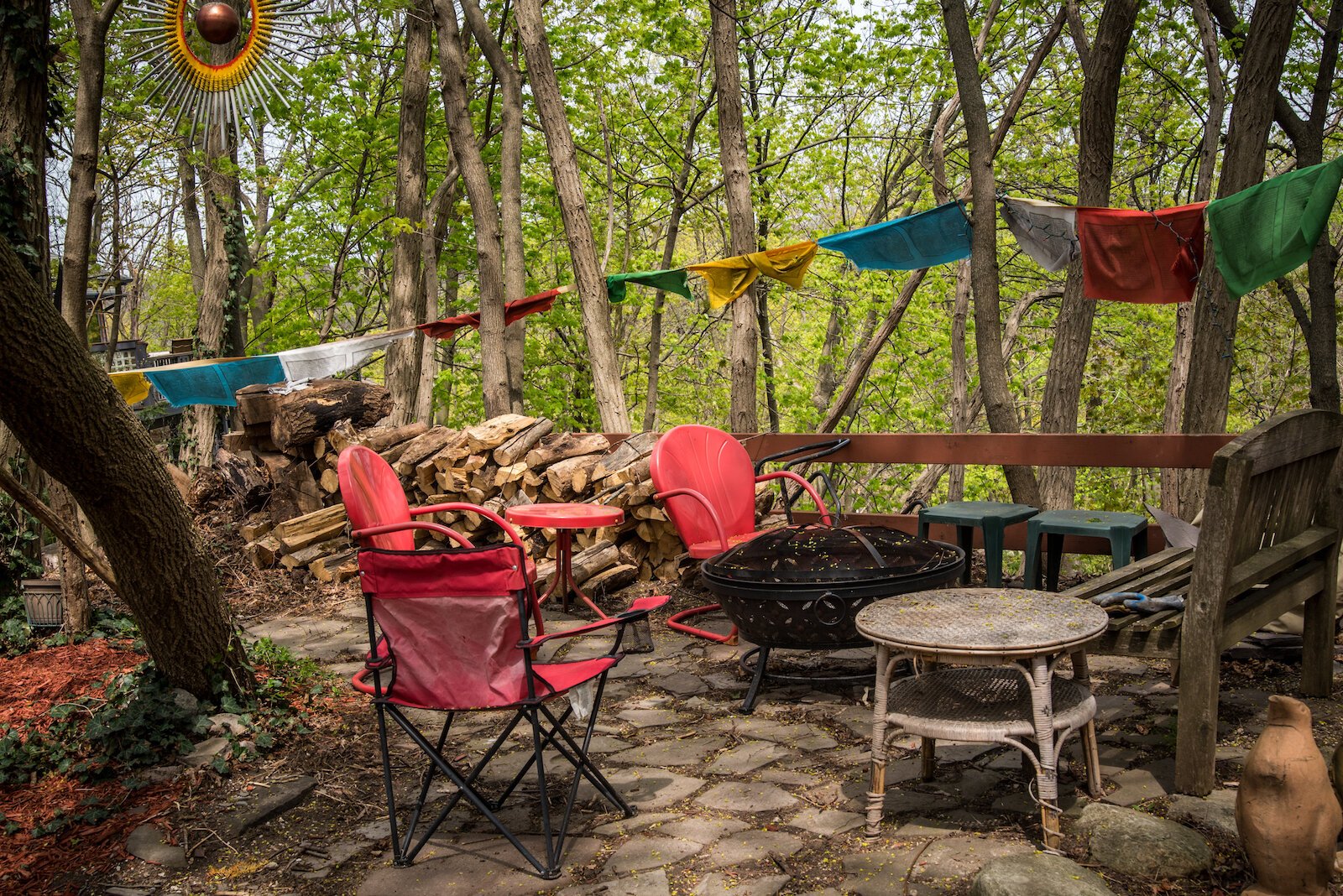
Almost every sale was made to people who were already renting.
A house where Gross now lives was condemned when Kostrzewa and his wife bought it. They offered the property to Gross when he said he wanted to build. The condemned house was demolished and Gross built a new house himself about 12 years ago.
For anyone who inquires about renting, Kostrzewa says he asks, “Do you like to live in a community? This isn’t 20 acres out in the countryside. This is nice, fairly dense, urban, family living. So we take care of kids. Get used to kids. Get used to being imposed upon. Get used to people asking, ‘Can I have a ride?’ ‘Do you have an orange?’ ‘Do you have a … (whatever)?’”
Nancy Rollins, a 20-year resident of Prospect Street, agrees, saying, “It’s a community. I know all my neighbors. We chat and spend time with each other. I know all the children and, for so many of these children, I’ve been here since they were born.”
Rollins relocated to Prospect from the Winchell Neighborhood about 20 years ago. She was the wife of former Kalamazoo bookstore owner John Rollins. He died in 2006.
Just shy of 80, Rollins is the senior resident of Prospect Street, a motherly figure to neighbors, and the adopted grandmother of children in the neighborhood. She is a good gardener and helps others with their yards when they ask.
“I also happen to be the candy lady,” she says with a laugh, explaining her penchant for supplying kids with treats. It helps that a neighbor built an outdoor pizza oven behind her house, which works out well when his kids and others gather there.
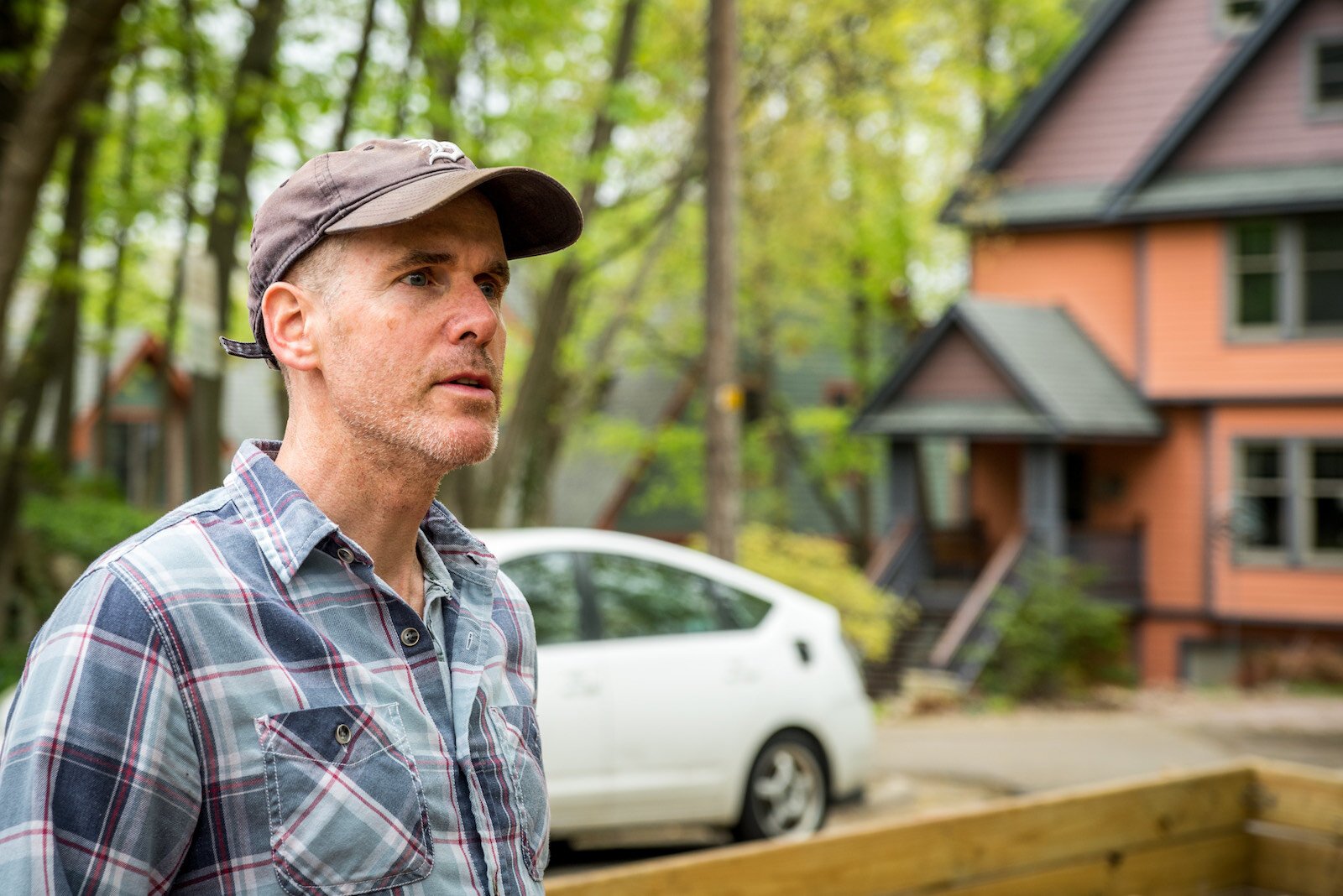
“It’s a great place to live,” says Kristen Rollins, who is Nancy’s daughter-in-law. She says it’s great knowing all your neighbors and feeling safe because of that.
“I think it’s just the people,” Maura Church says when asked what makes the neighborhood special. She and her husband Shay Church found Prospect Street about eight years ago after living in various places in the eastern United States and relocating here. Shay had lived in Kalamazoo previously and the couple wanted to let their children take advantage of The Kalamazoo Promise. They have a daughter, Mayla, now age 10, and a son Greysen, 8.
She and her husband are owners of Grayling Ceramics, which sells handmade home goods, including mugs, steins, vases, and tableware crafted by Shay just south of downtown Kalamazoo. He is a sculptor and some of his work adorns his neighbors’ yards, including the pizza oven in Rollins’ back yard.
“Everybody was very welcoming when we got here,” Maura says. And that has continued. Of Korean descent, she says she has found Kalamazoo to be a place where she is judged by her character before she is judged by her ethnicity.
Of West Douglas Neighborhood overall, Gross says, “There is great ethnic, cultural and financial diversity and if you want to live in some of that you would like it and if you don’t, you wouldn’t.”
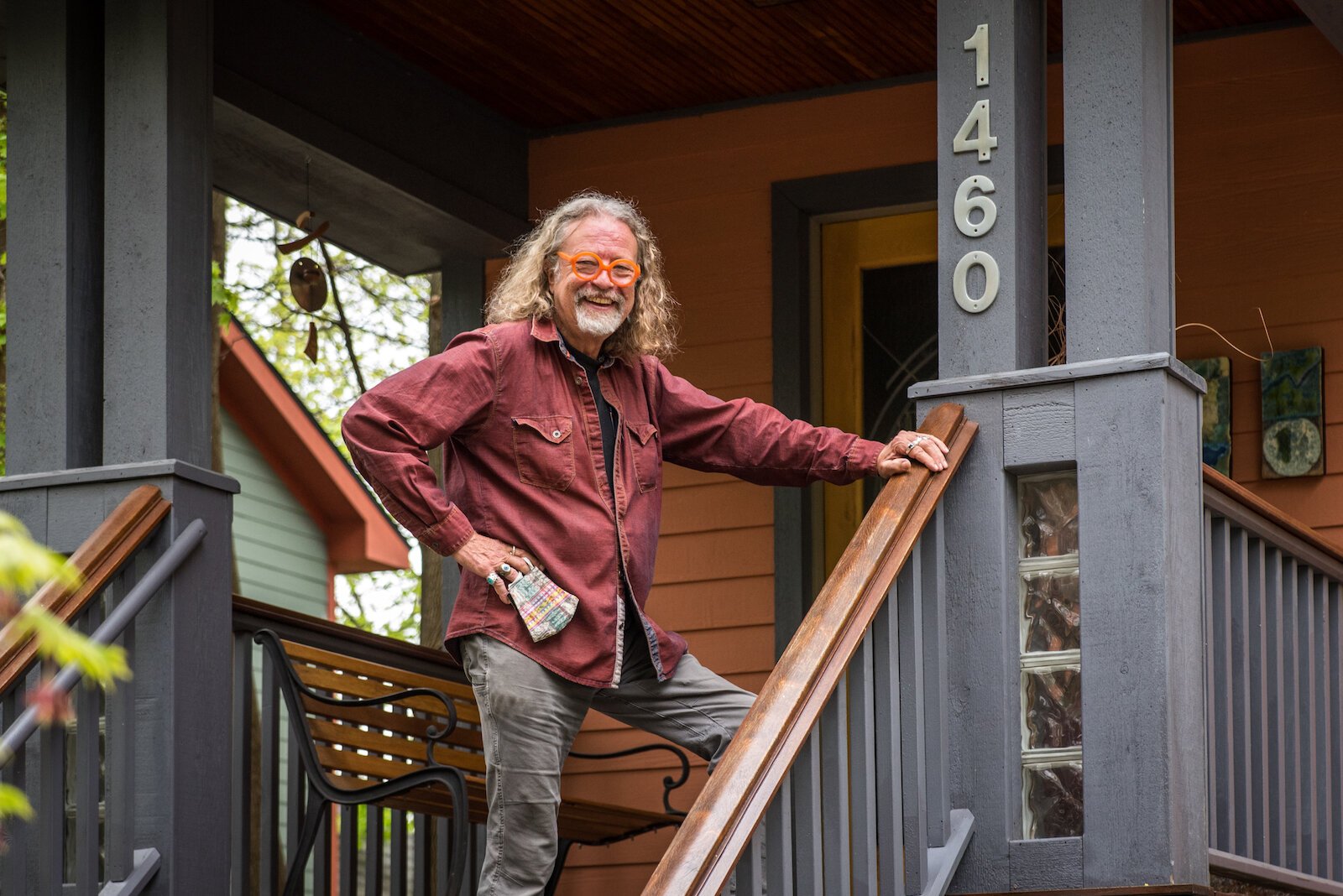
“I’d say it’s fun,” he says. “I’d say it’s open and relaxed. I’d say it’s really cordial, I’d say it’s really inclusive. … It’s just a classic slice of humanity.”
Kristen Rollins calls attention to the ground-mounted wooden poetry lanterns that adorn the yards of several houses and the Tibetan Buddhist prayer flags that hang from the porches of others. The lanterns are made by Kostrzewa and gifted to neighbors with a favorite poem. The prayer flags, which offer positive energy, are reminders of a trip he and other neighbors took to Tibet several years ago.
Kostrzewa is an instructor of global and international studies (political science) at Western Michigan University. A native of St. Ignace in the Upper Peninsula, Kostrzewa grew up in Mount Pleasant, attended Central Michigan University on a football scholarship, and has always had a passion for world travel, languages, and politics. He interrupted his undergraduate studies in 1974 to travel the world, hitch-hiking through countries on four continents, making money by writing stories about the people he met, and by plying carpentry and construction skills he learned early in life.
In late 1980, he met by happenstance the woman who would be his wife, Kalamazoo native Ogilvie, on a street in Beijing. Perhaps the only other Michigander in that city at the time, she was a WMU student studying abroad.
Between his world travels, which have included leading WMU students abroad on educational trips since 1989, Kostrzewa returned to the U.S. to earn a master’s degree at WMU in 1985 and a Ph.D. in political science at the University of Notre Dame in 1996.
He worked in construction in Kalamazoo after he and Ogilvie returned from two years in China to settle in Kalamazoo and raise their two sons, Ben and Alex. Ben was born in China and both sons are fluent in Mandarin.
Ogilvie is a licensed psychologist who is humorously considered the “empress” of the neighborhood. The title of “queen” is held by Nancy Rollins.
“Tom and Jean are the anchors of the neighborhood,” says Charlene Brown, who works as a licensed professional counselor and got to know the neighborhood before she married her husband Bob Lakey about 15 years ago.
“There’s a feeling of community,” she says, “especially right here on this block.”

“For one, Tom Kostrzewa at the time was, and probably is still now, my best friend,” he says. “And he owns a lot of the houses in the neighborhood. He had a rental house available right next door to him. I was coming off a divorce and needed to find a place to stay. I really liked the location. I liked being next door to Tom and I just liked the vibe of the neighborhood.”
The owner of the Oasis Hot Tub Gardens says the neighborhood is convenient to many other locations in Kalamazoo but is mostly surrounded by trees and has a very private feeling. “You’re right in the heart of the city and you don’t have this feeling that you’re jammed packed in high-density with your neighbors,” he says.
The West Douglas Neighborhood is located west and north of downtown Kalamazoo but separated from it by the Stuart Neighborhood. It is bordered on the west by Douglas Avenue, on the south by Main Street, on the west primarily by Arlington Avenue and Warren Place, and on the north by an area just below the U.S. 131 Business Loop.
The waiting list for people interested in renting or buying one of the properties in the neighborhood has always been long, Lakey says.
He and Brown say the neighborhood has improved over time. “It’s moved from having a lot of students which were here more when I first moved in in 2006,” Brown says. “And now it’s families. So the complexion of the neighborhood has changed dramatically.”
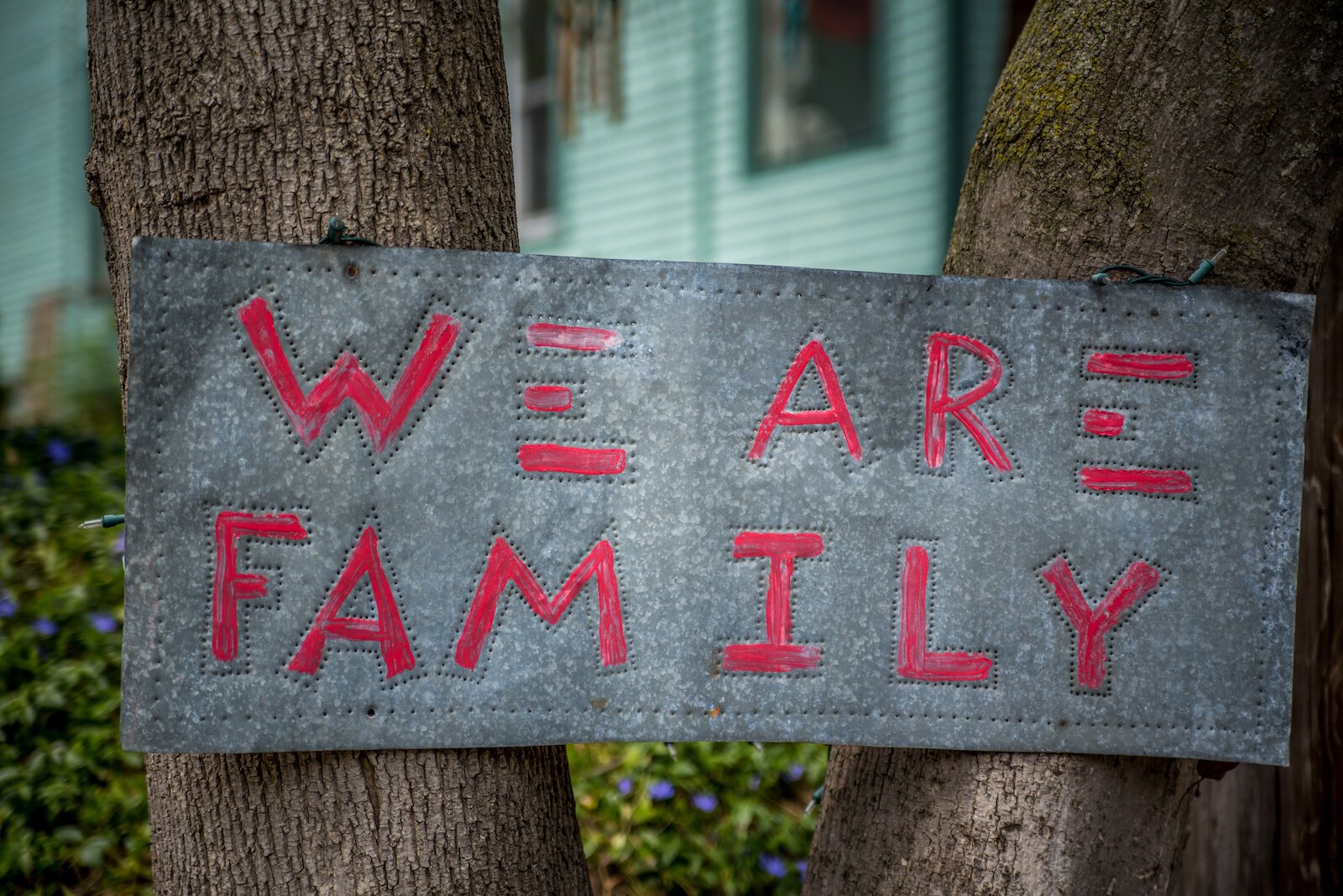
Kostrzewa sets the tone. He walks the neighborhood every day to pick up litter. He loans his tools and trailer. Anyone can use the “Yoga Deck” he built behind the house next door (where he once lived) to relax, play cards, read, or actually do yoga. He asks other people what they need. He is always ready for good conversations in the “state park.” And Sunday breakfasts are something to look forward to.
The People’s Republic of Prospect probably has such a neighborly vibe, he says. because it’s small and manageable.
“We all know each other,” he says. “You don’t get to do this in a whole country. You can’t know everybody. But we can all know each other here and know each other’s situation.”

